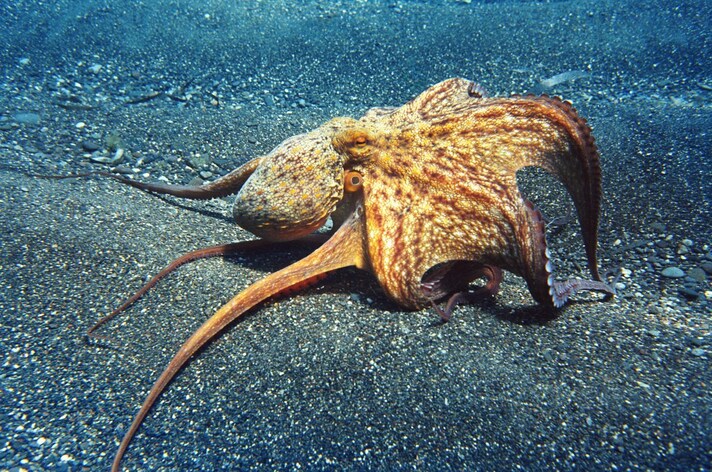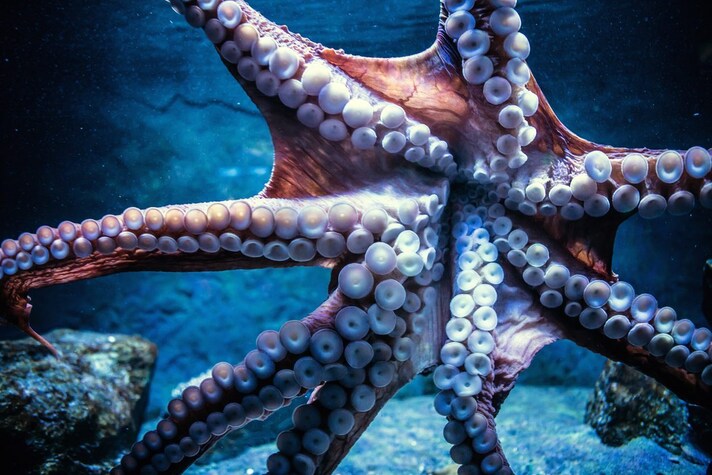
Nowadays we live in a constant climate of environmental crisis that, although less visible, has also involved the seas. Today we will discuss a news item that will make you think and perhaps hope because, for a few months now, Tunisia has banned octopus fishing indefinitely. We know that it is a drastic choice but, according to the government of the North African country, it was necessary to save one of the most fascinating and intelligent species in the sea. Our insatiable gluttony has led the octopus to be at risk of extinction in many areas of the Mediterranean.
If all this were not enough, faced with the decline of octopuses caught in the sea, some companies in several countries have proposed the opening of intensive farms. Greece, Spain and other nations on the Mediterranean are investing millions of euros to develop aquaculture technologies dedicated to cephalopods. All this has raised more than one question regarding sustainability and ethics.
A Disappearance That Has So Far Made "Little" Noise
For the first time, Tunisia has decided to completely ban octopus fishing throughout its territory. We are talking about a courageous measure that goes beyond the classic seasonal bans. The decree of the Ministry of Agriculture and Fisheries was published at the end of March, catching all operators in the sector unprepared. In and around Tunis, during the year, there is a specific time for fishing that usually goes from November to May 15. With the March decree, activities were suddenly interrupted more than a month in advance. All this shows that the situation was becoming an emergency and, for this reason, it was preferred not to wait further time that would have transformed the issue into a disaster from which there is no way back. A choice that will lead to many, many economic difficulties for thousands of families of fishermen who, like many people in the country, are not rolling in gold.

Tunisians had understood for some time that octopuses were disappearing from the seas, it was not a sensation but a real ecological alarm. Since the beginning of the year they had been reporting that the stocks of octopus vulgaris – the most common species in the Mediterranean – had been "decimated". All this is due to an explosive combination of excessive exploitation of resources, out-of-season catches, specimens that are too "small" caught ahead of time and, in the background, a sea that is warming up and changing more and more.

Let's take the Kerkennah Islands as an example, a symbol of traditional fishing in Tunisia. Today this place has become the face of the crisis, here octopus fishing is culture, history and subsistence but, for months, the nets have been increasingly empty. The will of the government of the North African country is to restore the marine ecological balance and ensure lasting survival of the octopus population. Despite the various difficulties, even local fishermen have agreed with the government's decision which has however announced plans for economic support for the affected communities.
A Decision That Could Be An Example for The Mediterranean
What is certain is that what the Tunisian government has done is a strong political gesture, capable of sending a message that goes well beyond the borders of its own country. A decision that has turned the spotlight on the urgency of changing the approach in the Mediterranean where the seas are increasingly empty and biodiversity is in crisis. We need more selective, less invasive and rigorously regulated fishing with a long-term vision. The solution will certainly not be found in intensive farming, as they are sentient creatures and therefore capable of feeling emotions, enclosing these animals in very small tanks would be inhumane. We must act before the silence becomes definitive and any decision taken would be useless for a situation that could become irreversible.
;Resize,width=767;)
